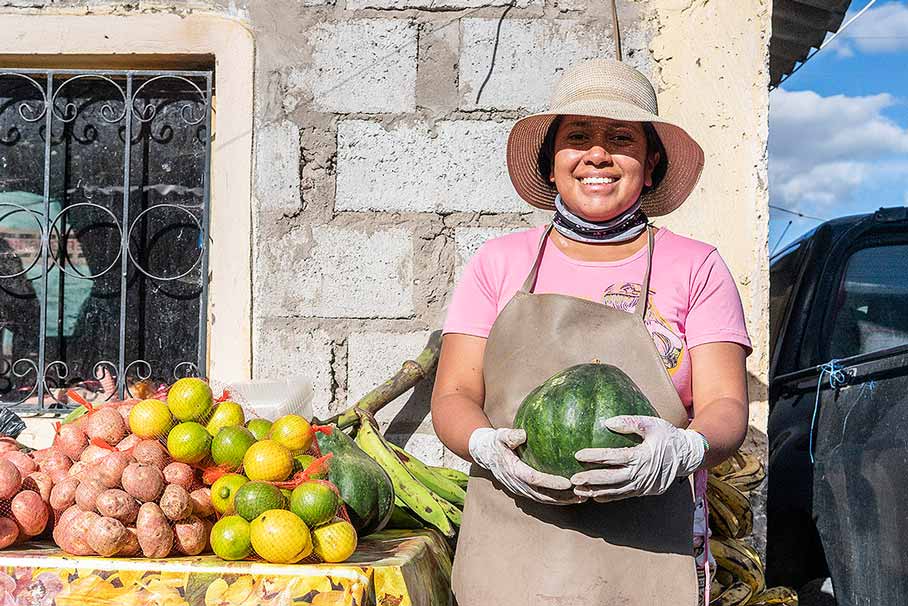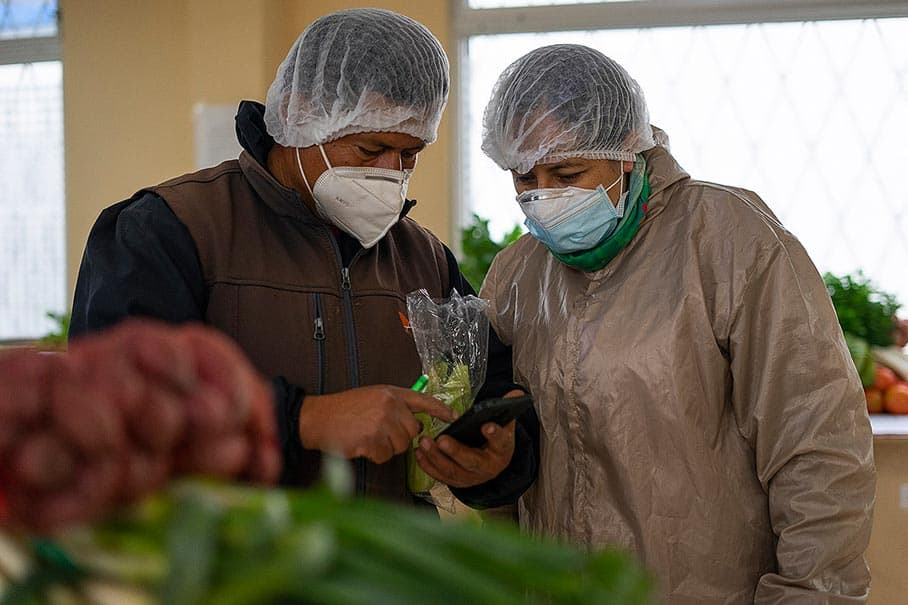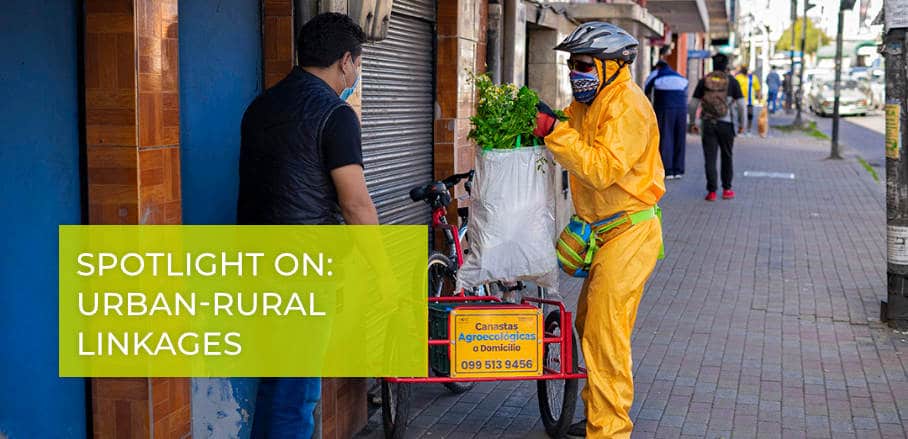E-Commerce in Ecuador: Farmers Oppose the Pandemic
The pandemic has been especially challenging for the agricultural sector. But a new farmer-owned online marketplace puts sustainable produce on the table and creates jobs for rural communities. By Rosa Rodriguez
In Ecuador, as in many parts of the world, farmers markets are a crucial economic exchange where goods and services are traded and money changes hands. These markets allow farmers and consumers to interact directly. It’s a transaction as old as time.
The COVID-19 pandemic made such face-to-face interactions nearly impossible. Almost overnight, many local governments and municipalities imposed lockdowns and restricted travel to contain the spread of the disease – and the economic consequences would impact farmers with perishable produce the most.
Agriculture is Key for Ecuador’s Economy
The agriculture, livestock, forestry and fishing sector contributes 9.63 per cent to the national GDP. According to the macroeconomic forecasts of the Central Bank of Ecuador, the branches of economic activity of other agricultural crops and the cultivation of bananas, coffee and cocoa represented 5 per cent of the total GDP in 2020.
In Ecuador peasant agriculture represents 55 per cent of the productive units, of which eight out of ten have less than 10 hectares of land to produce. They access only 2 per cent of the irrigation water and 6.4 per cent of the total land. What’s more important, small peasant economies participate in 60 per cent of the food production that we consume at the local level. Any significant loss in the produce of this valuable agricultural sector impacts our society as a whole.
Thus, to avoid their produce going to waste, a small group of farmer cooperatives in Quito and Cuenca were inspired to try something new: in May 2021, four farmer associations supported by Heifer Ecuador’s Future of Food programme created the country’s first farmer-owned online marketplace, La Cosecha del Día or “Daily Harvest.”

Farmer Josselyn Vega. The products are first collected from the farmers, then transported to the collection centre, where they are selected and packaged in baskets that go to the capital © Isadora Romero for Heifer International, 2020
An Online Platform That is Here to Stay
The e-commerce platform aimed to get produce to the plates and pantries of buyers immediately after harvest, connecting hungry families with food while reducing waste and creating jobs for the community.
Six months later and still coping with COVID-19, consumers are reaping the benefits of a system that allows them to go online to purchase fresh food at the same cost as a traditional open-air market.
Even though the programme is in its initial phase, there is enormous potential to expand to other cities across the country, because this format is a win-win that keeps valuable produce out of the landfill and meets the needs of farmers and their consumers. The best part of this new system is that it is likely to prevail even after the pandemic.
The pandemic showed that in cities, the habits of accessing products, goods, services, even fresh food, were changed: the habit of buying online can be observed across different sectors and is indeed here to stay. The online platform is a new way of marketing peasant products. And if commercialisation is the bottleneck that generates inequity for peasant production, it is necessary to allow for different forms of commercialisation in the hands of farmers: fairs, permanent stores, and online markets, that allow cities and residents to access fresh, local, and healthy products.
“The site increases our members’ profitability, provides a platform to market their products with technological tools, and reactivates the local economy,” concludes Nelson Sagbay, legal representative for Association Pamar Chacrin, one of the site’s four creators.

At the Quito collection centre, where producers and volunteers work on assembling the agro-ecological baskets that will be delivered that day to the north of the capital © Isadora Romero for Heifer International, 2020
Sustainable Food and Sustainable Income
Transparency is built into the site itself, displaying information on each food’s history and traceability. The associations also work together so production can be combined when there is higher demand, and specific products produced by one association can complement what other associations do not produce. This collaborative business model and constant communication between the site’s owners lets them take advantage of market opportunities.
Created with farmers’ interests at heart, the site was designed following standards that support sustainability:
- Quality: Food sold on the site is produced on farms practicing agroecology, balancing soil cycles and free from chemicals.
- Environment: The distribution and consumption of local food reduces transport emissions.
- Social justice: Product prices are affordable for consumers and fair for farmers, allowing them to improve their incomes.
- Data security: The marketplace is a secure way to shop for food online with a credit card.
Supporting this achievement for Ecuador’s farmer associations aligns with Heifer International’s Values Based Holistic Community Development approach — transforming lives by using a community’s collective strengths to overcome challenges.
- E-Commerce in Ecuador: Farmers Oppose the Pandemic - 8. November 2021
